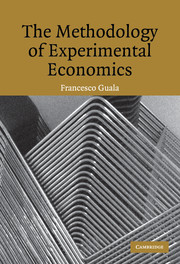Book contents
- Frontmatter
- Contents
- Analytical Table of Contents
- Acknowledgments
- 1 Introduction
- PART ONE INFERENCES WITHIN THE EXPERIMENT
- 2 Inside the Laboratory
- 3 Hypothesis Testing
- 4 Causation and Experimental Control
- 5 Prediction
- 6 Elimination
- PART TWO INFERENCES FROM THE EXPERIMENT
- Appendix A
- Appendix B
- Bibliography
- Index
3 - Hypothesis Testing
Published online by Cambridge University Press: 10 December 2009
- Frontmatter
- Contents
- Analytical Table of Contents
- Acknowledgments
- 1 Introduction
- PART ONE INFERENCES WITHIN THE EXPERIMENT
- 2 Inside the Laboratory
- 3 Hypothesis Testing
- 4 Causation and Experimental Control
- 5 Prediction
- 6 Elimination
- PART TWO INFERENCES FROM THE EXPERIMENT
- Appendix A
- Appendix B
- Bibliography
- Index
Summary
Like scientists, philosophers of science make use of models. Models of scientific method aim at capturing the processes of scientific reasoning, and work in many respects like scientific models: they are idealizations to begin with, and as such, they usually do not represent the real reasoning processes followed by scientists in all their details. Rather, they try to capture some “essential” aspects, and sometimes deliberately simplify in order to represent a problem or issue in a particularly forceful way. Moreover, like economic models, models of scientific method often have a hybrid descriptive-normative status, for they also aim at giving advice on the way in which scientists ought to reason, and help identify by way of a contrast our most common cognitive mistakes.
In this chapter, I introduce a well-known model of scientific method: the so-called Hypothetico–Deductive model of testing (or HD model, for simplicity). The HD model is an extremely useful tool to highlight some of the most fundamental problems of scientific methodology. As a representation of actual scientific reasoning, it is admittedly abstract and simplistic. Yet, it is flexible enough and can be easily amended to make room for some obvious exceptions and counterexamples. The HD model falls squarely in the empiricist tradition, according to which empirical evidence is the primary source of validation for our theories of the natural or social world. Most experimental economists would agree with this fundamental philosophical principle.
- Type
- Chapter
- Information
- The Methodology of Experimental Economics , pp. 39 - 61Publisher: Cambridge University PressPrint publication year: 2005

